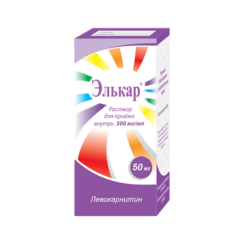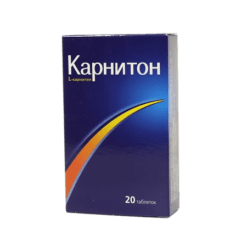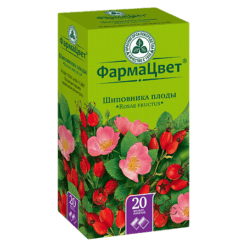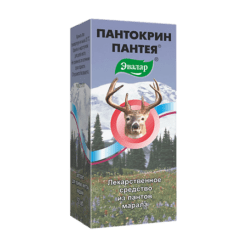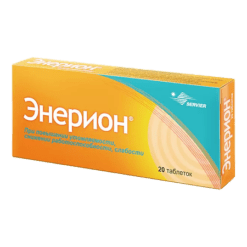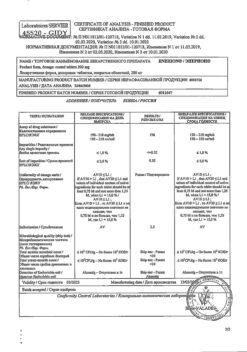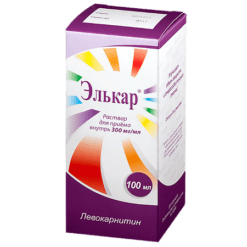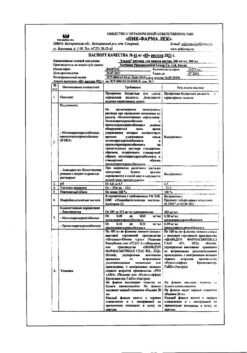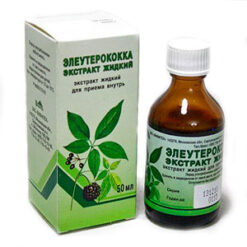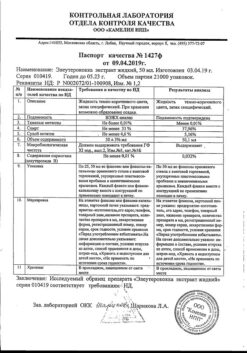No products in the cart.
Leflunomide Canon, 20 mg 30 pcs
€1.00
Out of stock
(E-mail when Stock is available)
Description
Leflunomide Canon is a drug with antiproliferative, immunomodulatory (immunosuppressive) and anti-inflammatory effects. The active metabolite of leflunomide A771726 inhibits the enzyme dehydrorotate dehydrogenase and has an antiproliferative effect. In vitro A771726 inhibits mitogen-induced proliferation and DNA synthesis of T-lymphocytes.
Therapeutic effects of leflunomide have been shown in several experimental models of autoimmune diseases, including rheumatoid arthritis.
Pharmacokinetics
After oral administration, absorption is 82-95%. Food intake does not affect the absorption of leflunomide.
Leflunomide is rapidly metabolized in the intestinal wall and liver to one major (A771726) metabolite and several minor metabolites, including 4-trifluoromethylalanine. The Cmax of the metabolite A771726 is determined within 1-24 h after a single dose. In plasma, A771726 is rapidly bound to albumin. The unbound fraction of A771726 is 0.62%.
The biotransformation of leflunomide to A771726 and the subsequent metabolism of A771726 itself is controlled by several enzymes and occurs in microsomal and other cellular fractions.
Trace amounts of leflunomide are detected in plasma, urine and feces. Excretion of A771726 is slow and characterized by a clearance of 31 ml/h. T1/2 is about 2 weeks.
In patients on hemodialysis, excretion is faster and T1/2 is shorter.
Indications
Indications
Basic therapy of rheumatoid arthritis in order to reduce the symptoms of the disease and delay the development of structural damage to the joints.
Active ingredient
Active ingredient
Composition
Composition
Active ingredient:
leflunomide 20 mg;
Supplements:
Hyprolose (hydroxypropyl cellulose) 6.7 mg,
calcium hydrophosphate dihydrate 72 mg,
Corn starch 31.7 mg,
croscarmellose sodium (primellose) 7.5 mg,
magnesium stearate 1.5 mg,
Microcrystalline cellulose 40.6 mg;
Composition of the shell:
Selecoate AQ-02003 6 mg, including:
hypromellose (hydroxypropyl methylcellulose) 3.6 mg,
macrogol 6000 (polyethylene glycol 6000) 1.2 mg,
titanium dioxide 1.2 mg
How to take, the dosage
How to take, the dosage
Over the mouth, the initial dose is 100 mg once for 3 days, then switch to maintenance treatment – 10-20 mg once a day.
Tablets should be swallowed whole with plenty of fluid.
Interaction
Interaction
An increase in adverse reactions may occur if recent or concomitant use of hepatotoxic or hematotoxic drugs or when these drugs are started after leflunomide treatment without a “washout” procedure.
In vitro studies have shown that the leflunomide metabolite A771726 inhibits the activity of the CYP2C9 isoenzyme. When concomitant use with drugs metabolized by this enzyme system (phenytoin, warfarin, tolbutamide) the development of undesirable effects of drug interaction cannot be excluded.
Special Instructions
Special Instructions
Use is possible only after a thorough medical examination of the patient.
Before starting treatment, be aware of the possibility of increased side effects in patients who have previously received other basal agents for rheumatoid arthritis, which have hepatotoxic and hematotoxic effects.
The active metabolite of leflunomide A771726 is characterized by a long T1/2. Therefore, side effects may occur even after discontinuation of leflunomide treatment. If this type of toxicity occurs or if you switch to another basal drug after treatment with leflunomide, a “washout” procedure should be performed (after stopping leflunomide treatment, colestyramine is prescribed at a dose of 8 g 3 times/day for 11 days or 50 g of activated charcoal ground into a powder 4 times/day for 11 days).
Please note that if severe dermatologic adverse reactions develop, severe infections, leflunomide should be stopped and a “flushing” procedure should be started immediately.
Patients with tuberculin reactivity should be monitored because of the risk of tuberculosis activation.
Given the long T1/2 of leflunomide, vaccination with live vaccines is not recommended during treatment.
Contraindications
Contraindications
Hepatic disorders, severe immunodeficiency states (including AIDS); expressed disorders of medullary hematopoiesis or anemia, leukopenia, thrombocytopenia due to other causes (except rheumatoid arthritis), severe infections, moderate or severe renal failure (due to little experience in clinical observation), severe hypoproteinemia (including nephrotic syndrome).including in nephrotic syndrome), pregnancy, lactation, childhood and adolescence under 18 years of age, hypersensitivity to leflunomide.
Side effects
Side effects
Cardiovascular system: often – increase in BP.
Digestive system disorders: frequent – diarrhea, nausea, vomiting, anorexia, lesions of the oral mucosa (aphthous stomatitis, lip ulceration), abdominal pain, increased levels of liver enzymes (especially ALT, rarely – GGT, ALF, bilirubin); rarely – hepatitis, jaundice, cholestasis; in individual cases – liver failure, acute liver necrosis.
Muscular system: often – tendovaginitis; possible – rupture of ligaments.
Dermatological reactions: frequently – hair loss, eczema, dry skin; possible – Stevens-Johnson syndrome, Lyell’s syndrome, erythema multiforme.
Hematopoietic system: often – leukopenia (white blood cells over 2000/μl), possible – anemia, thrombocytopenia (platelets less than 100 000/μl), rarely – eosinophilia, leukopenia (white blood cells less than 2000/μl), pancytopenia, in some cases – agranulocytosis. The risk of hematologic disorders increases with recent, concomitant and subsequent use of myelotoxic drugs.
Allergic reactions: common – rash (including maculopapular), pruritus; atypical – urticaria; in single cases – anaphylactic reactions.
Mechanisms of metabolism: mild hyperlipidemia, hypophosphatemia, decreased uric acid. Laboratory data (not clinically confirmed) indicate a slight increase in LDH, CPK.
Others: in some cases – development of severe infections and sepsis; possible development of rhinitis, bronchitis and pneumonia. When using immunosuppressive drugs the risk of malignant and some lymphoproliferative processes increases. The possibility of a reversible decrease in sperm concentration, total sperm count and motility cannot be excluded.
Overdose
Overdose
Treatment: colestyramine or activated charcoal. Colestiramine taken orally 8 g 3 times a day for 24 hours reduces plasma levels of A771726 by approximately 40% after 24 hours and by 49-65% after 48 hours.
Injection of activated charcoal (as a suspension) orally or via gastric tube (50 g every 6 hours for 24 hours) decreases concentrations of active metabolite A771726 in plasma by 37% after 24 hours and by 48% after 48 hours.
Pregnancy use
Pregnancy use
Leflunomide Canon is contraindicated in pregnancy, lactation, and children under 18
Additional information
| Shelf life | 2 years |
|---|---|
| Conditions of storage | In a dry, light-protected place at a temperature not exceeding 25 °C |
| Manufacturer | Kanonfarma Production ZAO, Russia |
| Medication form | pills |
| Brand | Kanonfarma Production ZAO |
Related products
Buy Leflunomide Canon, 20 mg 30 pcs with delivery to USA, UK, Europe and over 120 other countries.


